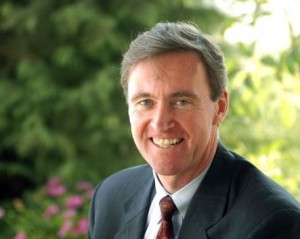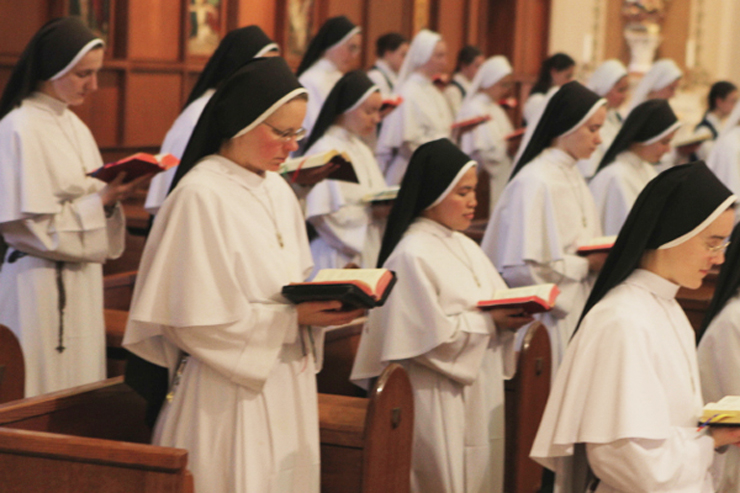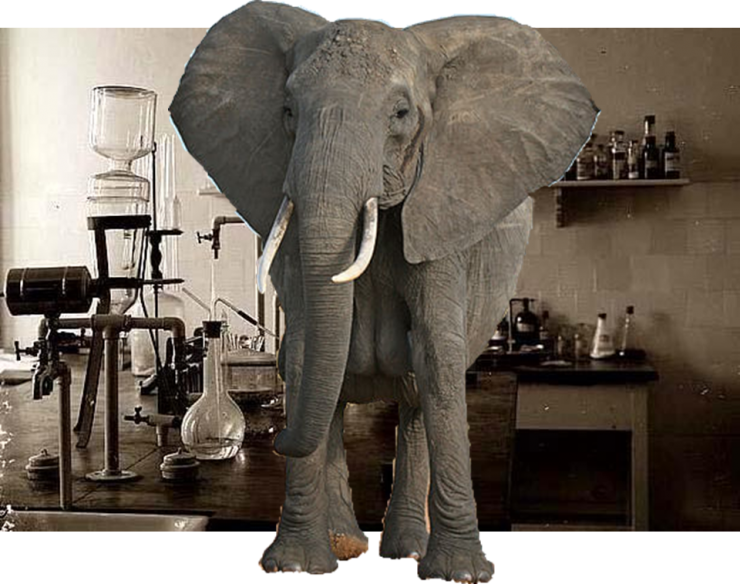 As with many of my connections to great Catholic writers, I first learned about Chris Lowney while conducting a Google search over three years ago for books on leadership. I came across Chris’s best-selling book, Heroic Leadership, and was captivated by the concept of a business leadership book based on the founding principles of the Jesuit order which had been established by St. Ignatius of Loyola and his followers over 450 years ago. I quickly devoured this wonderful book and emailed Chris to determine if he would consider being a guest speaker at St. Peter Chanel, the parish I belong to in Atlanta.
As with many of my connections to great Catholic writers, I first learned about Chris Lowney while conducting a Google search over three years ago for books on leadership. I came across Chris’s best-selling book, Heroic Leadership, and was captivated by the concept of a business leadership book based on the founding principles of the Jesuit order which had been established by St. Ignatius of Loyola and his followers over 450 years ago. I quickly devoured this wonderful book and emailed Chris to determine if he would consider being a guest speaker at St. Peter Chanel, the parish I belong to in Atlanta.
Although he wasn’t available at that time, eventually Chris was able to come to Atlanta on February 10, 2009 during a promotional tour for his next book, Heroic Living. I hosted Chris at two events that day where he was the featured speaker and was impressed with his intelligence, humility, humor and selflessness. As a former Jesuit seminarian who left the seminary to pursue a successful 17 year business career with J.P. Morgan, Chris has a unique blend of spiritual and secular experiences in his background which is clearly reflected in his writing and talks.
We kept in touch over the following months and Deacon Mike Bickerstaff, Dr. Phil Thompson and I (the founders of the Atlanta Catholic Business Conference) felt he was an obvious choice to be our keynote speaker at the 2nd Annual Atlanta Catholic Business Conference held this past February. Chris delivered a stimulating and well received talk on self-leadership and the teachings of St. Ignatius of Loyola.
He has been devoting his time recently to a program he helped form which is focused on developing emerging leaders in the Catholic young adult communities of several cities in the U.S. He discusses this at length in the interview. Chris Lowney describes himself as a “pilgrim on a journey in the Catholic Church” and he is quite content to let opportunities to serve others carry him forward. He is a thoughtful man, a man with many gifts and a great example for others in how to live a heroic life, filled with purpose and meaning. Below is my interview of Chris Lowney, conducted on June 4th, 2010.
Chris, it is great catch up with you. I understand you have been working on a project to develop emerging young leaders in the Catholic community. Can you share with us what you are doing?
Yes, I’ve helped to develop a program that we’ve called “Contemplative Leaders in Action,” which each year gathers a cohort of about 15 Catholic young adults, who commit to a monthly meeting, an annual weekend retreat, together with other ancillary activities, like doing service work in the community. They commit to a two-year program. We started in New York, added Boston and Philadelphia, and we will now add Chicago, DC, and Syracuse. And we hope to attract partner sponsors in other cities, so I would be glad to hear from interested parishes or schools!
The Contemplative Leaders in Action name is a gloss on an early Jesuit motto that Jesuits had to learn to be “contemplatives even in action.” We thought that name captures the reality for all of us in the 21st century: challenged to be reflective people amidst the chaos we’re all trying to navigate in a busy, noisy, and distracting world.
The “leader” part? We want to help these folks develop themselves as “Christian leaders,” who have a spirituality, participate in service, and who will help to build up the Church. We’re very purposely trying to go where other programs don’t: that is, we want to give folks some deeply spiritual skills and some very worldly skills. We want people to have a whole life, not a split life; and so our program tries to present a “whole life feel.” It’s not a secular leadership program and it’s not a prayer/retreat experience: it’s both together.
Clearly this is needed in the Church today and I applaud you for your efforts. What are your thoughts on how we can keep young adults more engaged in the Church?
I wish I knew!
The one thing I do know is that this is an urgent problem, and I don’t think any of the mainline Christian denominations, including the Catholic Church, has focused enough energy and attention on this. Robert Wuthnow, the great sociologist of religion at Princeton, wrote an interesting book called After the Baby Boomers, in which he shows how imperiled our churches are by the falloff in organized religion engagement among younger generations. We sometimes assume that “once they get married and have children they will come back to the Church,” but the research is telling us that this old pattern is breaking down.
By no means am I suggesting that the Contemplative Leaders program described above is “the” solution, although we’re pleased with our modest success. But what I am certain of is that we as a church need to get seriously in the game by experimenting with ideas to engage more with these generations, understand them better, share best practices among those in the Church who come up with interesting ideas, and hopefully make some progress. The worst thing we can do is “do nothing and hope for the best.”
I am a big fan of your last two books, Heroic Leadership and Heroic Living. Do you have another book on the horizon?
No unfortunately, I don’t have any new ideas at the moment for a book (in fact, some people would say I haven’t had any new ideas for about the last two books!) And, I’m also a bit busy with the project discussed above and another project to try to deliver online education for persons in refugee camps in Africa. In that program, we will have a couple of pilots (one in Kenya and the other in Malawi) whereby refugees will be able to participate in college level courses, analogous to the various online education programs one sees in the United States.
I really enjoyed the rhythm of writing and the process of going from a blank page to a book, so I hope I’ll be able to go back to it. But nothing is on the horizon right now.
With your Jesuit education and training as a former Jesuit seminarian, Ignatian leadership principles are evident in your writing and talks. Why is St. Ignatius still relevant in today’s world? How would you suggest people learn more about this amazing Saint?
St. Ignatius’s spirituality touched me just because that’s how I was trained in seminary. But I do think it’s very, very broadly relevant. The Jesuits had to invent an “active” religious order. That is, they would not be cloistered in monasteries but doing time-consuming jobs out in the world as teachers and so on. So they had to solve the problem that we all have to solve: can we be spiritual and worldly people, can we be in the world but not of it. Can we succeed in worldly endeavors (in their case like running schools), yet still be deeply principled in the way we “do business.” These are exactly the challenges that a serious Christian in the world today must face.
How do we learn more about Ignatius? Ah. That’s the question. I wish someone would write a good, updated biography of him. There are many very academic bios, but most of the popular ones were written decades ago, and sometimes their language is a bit romantic for modern readers. As for how to learn more, I might suggest dipping in via the many web sites that would offer short, overview biographies of St. Ignatius, or any general collection of saints’ lives, which would include a short life of Ignatius. Then, see where it goes. If one wants to learn more based on a short taste, one could read Ignatius’s short autobiography (the autobiography might be a good second book to read about Ignatius, but not a first book: the autobiography doesn’t cover his whole life and doesn’t give enough background context).
Can you share with our readers a little about your non-profit charitable organization, Pilgrimage for our Children’s Progress? How did you get involved and what is the mission?
I started Pilgrimage for Our Children’s Future in conjunction with a walking pilgrimage I attempted to Santiago de Compostela in northwest Spain, which, by Christian tradition, is a place where St. James the apostle’s relics are honored. It’s a wonderful, well kept pilgrim route, and I fully recommend it to any of your readers. I tried to do the 500-mile, “macho man” distance (and got put in my place when I fell sick after 250 miles). But one could start at various towns and make a much shorter pilgrimage, one week or even less if one wants.
In any case, I decided to do it “walkathon” style and set up Pilgrimage for Our Children’s Future, which accepts donations for education and healthcare programs in the developing world, often through small schools or clinics run by religious orders. The website of the charity is www.pocf.org
It’s not a fancy non-profit with lots of programs and employees. In fact, there are no paid employees at all. It’s a small, grassroots effort to support some worthy developing world efforts run by Catholic organizations. These small schools and clinics are often great and do God’s work truly, but they don’t have the “fundraising machine” or know-how or access to donors that many larger US organizations have.
We are still receiving great feedback on your presentation at the February Atlanta Catholic Business Conference this year. What is your take on the idea of promoting Catholic values and teaching in the workplace? More specifically, of integrating our faith and work which is the mission of the ACBC?
Let me take a detour en route to answering your question. It’s been my privilege to get to know a number of Muslim and Jewish believers over time. And I’ve been struck by the way in which Muslims often speak of Islam as a “total way of life.” Well, we Catholics believe something similar, but it’s interesting that I rarely hear us use language like that. In the Muslim “imagination,” their religion can easily become a total way of life because it impacts so many aspects of life through many prescribed rituals around daily prayer, food, dress, etc.
Which leads to the point of your question and the mission of ACBC: in the Catholic imagination, how does our faith become a total way of life? We don’t have so many prescribed daily rituals as our Jewish or Muslim friends. I think part of the answer for us, as the business conference is working on, comes in the ways we approach and think about our work. For example, do we see our workplace more explicitly as a forum in which we can champion human values that for us can have deeply religious roots (eg justice, charity, compassion, etc)? And, we can conceive our work in very religious ways: Pope John Paul II spoke of the idea that we humans share in the activity of the Creator by our work. That’s potentially a very powerful idea. How can come to grips with that in our work as teachers, bankers, home builders, or salespeople? It seems to me that this is a challenge we have to take on if we are to be serious Christians.
As you look across the landscape and consider the biggest issues facing the Catholic Church today, what are your biggest concerns? How can we potentially address them?
I’m no expert. But I’ll give a personal opinion, which will probably get me into trouble! I remember when the idea of a “new evangelization” started. We’ve spoken about it since, a lot, but I can’t say I’ve felt us doing a lot of evangelizing! I’m not sure what the strategy is, and I’m not sure those of us in the laity have been challenged to take this on somehow. As someone who worked in business for my career, my instinct is immediately to ask: OK, what’s the plan? And what’s our part in it?
In many parts of the world, the trends in Catholic practice are worrisome. Europe is the example that comes to everyone’s mind, where even “holy” Ireland, Portugal, or Poland have experienced real slippage. There is a lot of suffering in the world, and the world has many problems; we Catholics have a lot to offer to people, but we have to find better ways of helping people find their way to the value of what we offer.
To be sure, this is by no means a Catholic-specific issue, and the Catholic Church has fared better than many. But we haven’t really figured out what to do about this, how to engage this world that we now have. Worse yet—here’s the part where I’ll get in trouble—Catholics sometimes seem to be pulling apart, blaming one “sort” of Catholic or another for the problem. When an organization is faced by “external” challenges—for example the cultural indifference or even hostility to organized religion—it is generally not productive when the members of the organization react by pointing fingers internally instead of figuring out how to join together to face the challenge.
As a former business leader with JP Morgan, how would you describe the state of business leadership today with regards to the economy, strategic thinking and ethical business practices? Do you see any significant investment being made in leaders of the future?
I was very proud to work at Morgan and in that industry (and I still am proud…sort of!). But I think there are a lot of very worrying issues that we’re not really coming to grips with. The whole culture is becoming very individualistic—a sort of Adam Smith on Darwinian steroids seems to fuel the way we think about business sometimes. I don’t see any reversal of this trend toward ‘me first’ in the way business gets done: there are huge amounts of money at stake as one becomes more successful in a corporate hierarchy, and that can tempt folks to very self interested behavior rather than “organization-first” or mission first behavior.
And, we don’t really invest a great deal in leadership formation in many companies. The competitive environment is such that management teams often feel they can invest in only those initiatives that deliver clear and immediate bottom line impact, and the “soft stuff” like leadership formation seems too vague and long-term an investment to make.
I guess I’m a little pessimistic!
Chris, time for an oddball question! If you speak to a large group of Young Adult Catholics and discuss any topic, which would you choose? What lessons should they walk away with from your talk?
Well, I guess the first thing I want to say, which is not exactly in answer to your question, but which crosses my mind as I reflect on my answers to your previous questions: you asked questions that might make me sound as if I “have my act together.” But I’m very well aware, and I want the readers to be aware, that I spend a lot of time bumbling around, hopefully trying to do the right thing most of the time, but often falling short. One of the graces of maturity can be a more willing acceptance and insight of one’s own humanity, flawed though it is.
As for what I would say to young adult Catholics: it would probably be something like—Invest time in knowing who you are and what you think is really important in life. Psychologists tell us that most folks don’t really ask the “big” questions, the meaning of life stuff, until their forties, and I’ve found that to be true. So people are often swept through their 20s and 30s, critical years, on this popular cultural tide that champions “success” and “getting ahead” and “keeping up with the Joneses” and “status” and a dozen other things. Then at some point in life they wake up and say, “what was that all about? I don’t even care about that stuff!” — it would be great to make the investment in oneself earlier in life to understand what one cares about, what one wants life to be about, what ultimately is important, and so on.
Chris, it has been a pleasure as always and I look forward to seeing you in the future. The editorial team at Integrated Catholic Life are big fans of your books and talks and we are truly grateful for your time.
Randy-thank you and I wish you and Deacon Mike continued success with the Integrated Catholic Life eMagazine!
Chris Lowney’s Biography:
Chris Lowney is an accomplished best selling author and sought after speaker. A former Jesuit seminarian, Chris was named a Managing Director of J.P. Morgan & Co. while still in his 30s and held senior positions in New York, Tokyo, Singapore and London until leaving the firm in 2001. He served successively on Morgan’s Asia-Pacific, Europe, and Investment Banking Management Committees, accumulating extensive multinational experience at a company regularly ranked one of “America’s Most Admired Companies” by Fortune magazine.
His first book, Heroic Leadership: Best Practices from a 450-Year-Old Company that Changed the World was the #1 ranked bestseller of the CBPA and was named a finalist for a 2003 Book of the Year Award from ForeWord magazine. It has been translated into ten languages. His recently-published new book, Heroic Living: Discover Your Purpose and Change the World, is a life strategy that marries age-old spiritual wisdom to the best modern management ideas. Chris is a summa cum laude graduate of Fordham University, where he also received his M.A. and was elected to Phi Beta Kappa. He is holder of honorary Doctoral degrees from St Louis University, Marymount Manhattan University, and from the University of Great Falls.
Visit Chris’ website at www.chrislowney.com.













